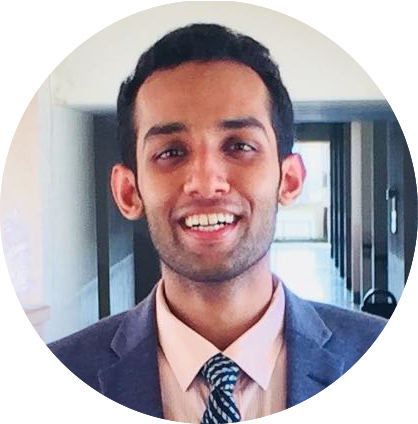Teaching
I love teaching. Probably taken after my mum on that front. She's great!
During my degree programs, I have been an instructor for Network Science, Data Visualisation, Collective Interlligence, Performance Analytics, Non-Linear Dynamics and Chaos, and Introduction to Astronomy and Astrophysics. More details about these can be found in my academic CV.
Principles of Science
Between August-December 2019, I was at Ashoka University in Sonipat, India as a Teaching Fellow (TF) in the Physics Department.
Principles of Science is a Foundational Course (FC) which is taken up by a diverse set of undergraduate students, mostly in their first or second year.
The Physics Department, for the first time since its inception three years ago (the university is quite new...about 5 years old) is offering this course. Prof. Gautam Menon, a statistical physicist by training (yay!) conducts the lecture sessions and Gaurang (a fellow TF) and I conduct 6 discussion sessions (DS, 3 each) on a weekly basis where we dive deeper into the essence of this course.
Not all of the students enrolled in this course will major in conventional domains as Physics, Chemistry Biology, Mathematics or Computer Science. A major fraction of these students will go on to major in a variety of disciplines such as English Literature, Political Science, Psychology, Economics, Finance, History, Anthropology, etc.
The challenge then becomes to convey what can science (as we know it) do to better an individual, not just academically, but as a person! In doing so we make it a point not to impose our opinion. Instead, they are offered a ton of information and resources to come up with their own opinion! Rather than explicitly defining the structure or the essence of this course, I suggest you read along and frame your own idea of what principles of science mean to you! It is a herculean task for me to write about what happens in roughly 6 hours of class each week and I do not intend to do that. Instead, here are certain discussions which I vividly remember (apart from conventional problem solving/lecture revision discussions) from each week and in subtle ways pride myself for initiating such thought among my new friends!
PS : This is in no way a Physics course. Rather, it deals with fundamentals. An intuition for numbers, for estimates; the efficacy of a graph, a function; the universality of hypothesis-data-iterations; the role of bias, of being in a bubble, of having your thoughts influenced by the newspapers you read, the social media you; use is prominent in everyday life. Taking a plethora of examples from current affairs a linking this to fundamentals of science, this course aims to make one not just learned collective, but aware as an individual.
Week 1: The scientific method, without giving it a name!
Context: Prof. Menon showed this in class after posing an interesting question of how one could differentiate two people on either side of the Wagah border (the border between India and Pakistan at near Amritsar) if the border did not exist. Long story short, it hinted how genetically similar/different individuals of the human race can be.
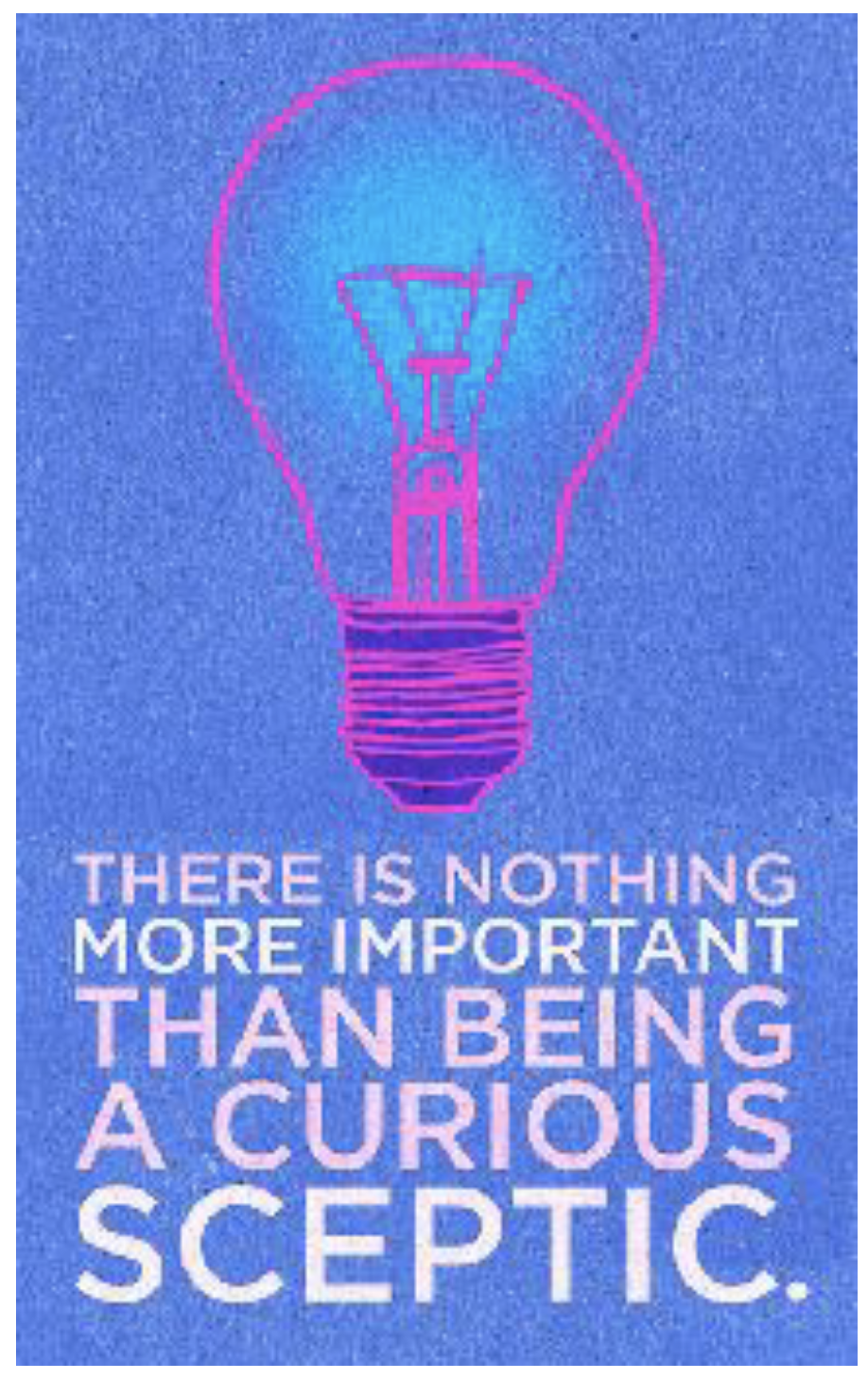
A student in class voiced his discomfort with the spelling of sceptic and opined that it should be skeptic instead. Ofcourse murmurs from the rest of the class leaned to the conventional argument of British English versus American English.
I saw an opportunity in this to hint at the scientific methodology (hypothesis-data-iteration) :
DS: I acknowledged their response pertaining to the differences in British versus American English. But to convey my thought, we spoke about two examples:
Case 1: skeptic vs sceptic: I asked them to go back in time to when a printing press did not exist and stamps containing individual letters might have been used to make documents. Trying not to get myself distracted into power laws in Physics, here is how it went:
Rachith: Suppose I pick out two letters from a book written in English, say `t` and `z`.
Which one do you think will be used more frequently in the book?
The class collectively answers `t`
Rachith: Given that you've told me that `t` is more frequently used,
which stamp do y'all think is more prone to wear and tear? Is it `t` or `z`
The class collectively answers `t`
Rachith: Similarly, if I were to tell you the letter `c` is/was more frequently used than the letter `k`
and hence former's stamp wears out faster than the latter's,
would it not make sense for me to replace `c` with `k` if
it does not lead to a change in the pronunciation of the word?
Class: 😮
Case 2: colour vs color
Rachith: Let us stick to the time when the printing press did not exist and we relied on stamps.
If I was to get a document 'printed', most likely I would be charged a fee based on the number of letters,
in other words, the number of stamps. Agree?
Class: Seems reasonable
Rachith: So would it not make sense for me to shorten my words (by reducing the number of letters in them),
without changing its pronunciation whenever possible?
Class: 😮
Take away: Acknowledge that countless hypotheses can seem to explain a certain phenomenon. Realize what it means to hypothesize. Question how would one go about proving or disproving a hypothesis. Can a hypothesis always be proved/disproved?
Week 2: What do you believe in?
This week was mostly spent in giving examples and counterexamples showing the subjectivity and objectivity of human thought.
I posed a very general question to the class. If I recollect correctly, thumping my clenched fist in the air to emphasize the gravity of the question hitting them, I asked "What do you guys believe in or look for when it comes to making decisions"
Not surprisingly I heard a variety of responses some of which stuck with me....
Response 1: Logic
Inevitably I brought in the man himself, Richard Feynman.
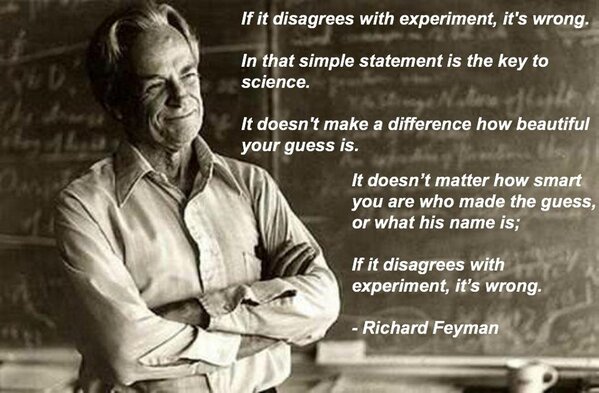 I tried giving the class example of aether, a medium once thought to occupy free space which, to boil it down, was once considered the answer to the question "The speed of light is ... with respect to what/who?". As logical as this hypothesis of aether sounded, it was proved to be wrong by the Michelson–Morley experiment.
At this point, if I could read the minds of the diverse set students in the class, I'm sure they would have been thinking, "ugh! I chose not to do science and here is this dude boring me with things I will never care about".
I resorted to a very crude logical fallacy :
I tried giving the class example of aether, a medium once thought to occupy free space which, to boil it down, was once considered the answer to the question "The speed of light is ... with respect to what/who?". As logical as this hypothesis of aether sounded, it was proved to be wrong by the Michelson–Morley experiment.
At this point, if I could read the minds of the diverse set students in the class, I'm sure they would have been thinking, "ugh! I chose not to do science and here is this dude boring me with things I will never care about".
I resorted to a very crude logical fallacy :
Rachith: If someone was to teach his/her the concept of addition to his/her friend who believes in logic in the following way :
Someone: 2 + 2 = 4
2 * 2 = 4
3 + 3 = 6
3 * 3 = ?
What would the friend respond to this?
Class: 😮
Rachith: What sounds logical to us, may not sound logical to our neighbors or to the universe.
In other words, the universe does not function according to our logic.
That is what I find the most beautiful...how oblivious 'she' can to our existence
Response 2 : Majority Opinion
I was extremely tempted to discuss my master thesis about information cascades in adaptive networks and how things can get really messed up leading to fake news, rumors, etc. After giving them an insight, I suggested they watch the Netflix documentary 'The Great Hack'. I also made up a single example of going out with friends and how majority opinion wins over (A five-person group convincing a sixth person to also go out!) but might have different repercussions for each of the individuals going ahead.
Week 3: Take care
Being a Twitter buff, I came across this tweet talking about acknowledging and tackling climate change being a global responsibility. I have always felt disgust and unrest looking at those, including a few of my mates, not being responsible enough to switch off the lights and fans/coolers of a room before when step out of it. For me, not doing so renders whatever qualification a person has, moot.
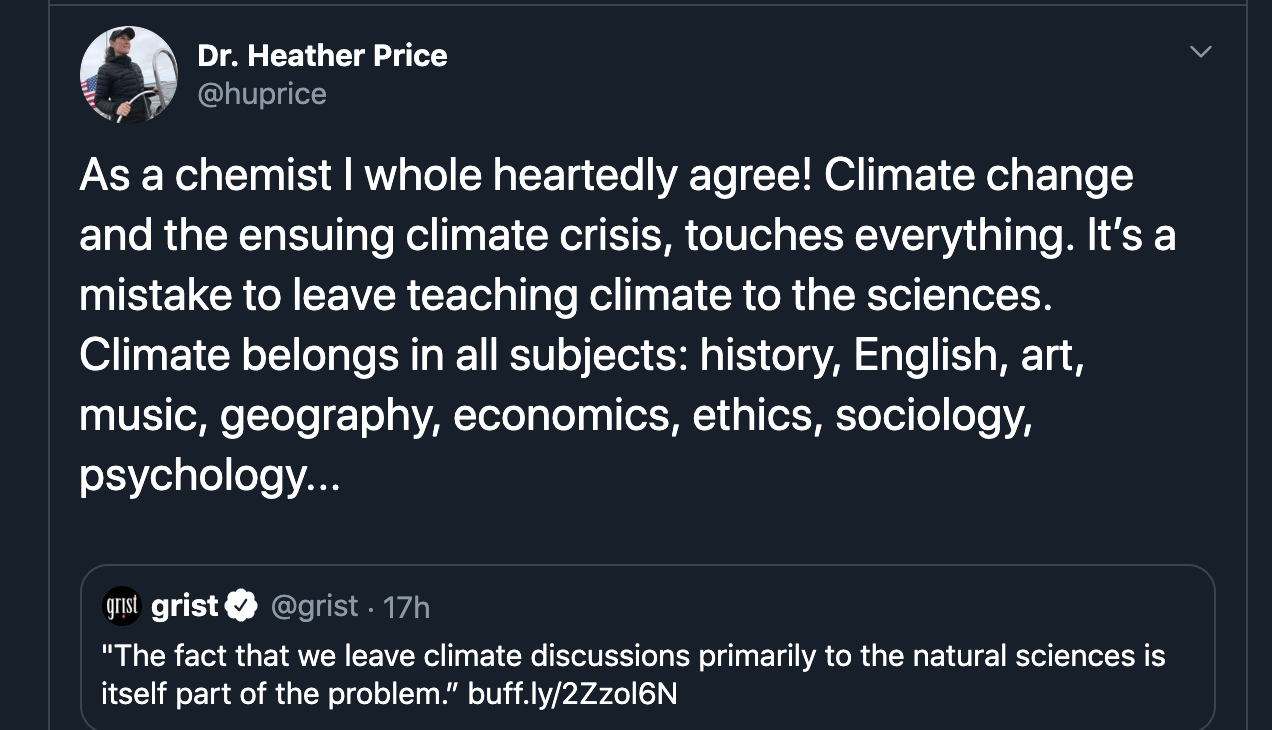
I spoke to the class about the need for us to pay attention to subtleties and trivialities of everyday life. I suggested against patronizing others around them. As an example, it is not solely the responsibility of guards to go around turning off the power in empty rooms. It is each one's responsibility.
Walking around campus, I sometimes catch a glimpse of them doing their part in being better global citizens. This makes me smile. I don't believe in paying compliments when it comes to being better global citizens. That would set up a template. Taking care of your home should be as ingrained and involuntary as breathing/blinking, etc. I hope it soon is.
I also spoke to them about taking care of themselves. I do not remember if I termed it as mental health but I did speak about it being recognized medically. Either way, I explicitly mentioned a few things from personal experiences. The Indian educational system is harsh. Contrary to what the elders in the country say, it does not get 'comfortable' after grade 10 or grade 12 or for that matter even after you graduate with a degree. I suggested to them to stop comparing themselves to others(the grass is always greener on the other side!) and aim to be better versions of themselves instead. Having a great set of peers and giving each one and themselves time is certainly necessary. Treat academia as a part of one, not the whole of one. There is so much to learn, to live and enjoy outside the world of academia. Find what fundamentally makes one happy and make that a part of your everyday!
Week 4: Quantiative (Panic attack!)
This week, we discussed about estimates and order of magnitudes. What does it mean to say something is 10 times bigger or smaller than something else. I was trying to give them a picture of what simple estimates can do for us. During my time in Bangalore, Dr. Vishu had showed us a clip (unable to find that now) when the lot of us were discussing why road widening, is a bad idea in order to solve the traffic crisis in Bangalore. Simply put, in road widening is just a temporary solution which will only invite the roads to get more congested with more traffic inflow as time progresses. Stating this as an example, I reached a point where we discussed the need for more public transport in India, especially in the Indian metropolitan cities. This went back to the discussion of last week about climate change and also connected it to an estimate problem best described by the following gif.

This gif conveys a ton of information. "How much more space is availble on the road if everyone were to use the public transport?" is one estimate question (we taught them Fermi estimates!) which I posed to the class.
Week 5: Our government
The lectures this week introduced the students into the functions and graphs. The question 'why?' naturally arose.
The need for graphs was a relatively easier thing to explain. With the conventional statement that graphs are the easiest way to (mis)represent data, all I did was show a the youth of India, this particular picture (along with a 'Trigger Warning' ofcourse)

Sometime during the last year, the rising petrol prices in India found itself on the front page of every news paper blaming the BJP government for not imposing a check on this. So, the party, released this 'graph' on their official Twitter page, with an intention...frankly I don't understand their intentions anymore. Well, it backfired. Misrepresentation of data and fake news is all around us today and as a golbal citizens, we need to first identify them before we can do something about them. The reactions of the class, aligned with my pre-conceived notions. Intial stun leading to disgust followed with sighs. With an aim to further diversify their thought, I asked them to think of the millions in the country who are, unfortunately, not priveleged to have the knowledge to see what is wrong with the social networks they are all part of. India is such a country in which a person can afford a telephone connection more easily than he/she can afford food and other basic amenties.
As an aside, the situation is so bad that the campaingners during the election season promise the subaltern access to food in excahnge for votes. Yes, apparently, to our campaigners, food, water, clearn air to breathe are something which is not the fundamental right of each citizen. Sigh.
With the class understanding the importance of graphs, I briefly gave them some motivation about the need to predict the future given today's data. With this unconventional approach (graphs ->functions rather than functions -> graphs) I stepped into scales.
Week 6: Slipping in some power laws (I am a student of Physics after all!)
Upon further discussion, it soon became evident to the class that graph of functions like x2, x-2, 2x, 2-x etc. all had a lot of cluttered points on a linear scale. I revisted the 'why do we need logs?' question which most of them had posed during the lecture on logarithms a few weeks ago and asked them to prepare for some mathematical magic. Long story short, in order to show one of the many uses of logs, I plotted (and taught them to plot) these functions of the log-log scale of a log-linear scale. The simplicty of straight lines is soothing to any audience 😌
Ofcourse I could not stop there. Ofcourse I had to show them this. Dr. Mark Newman, thank you!
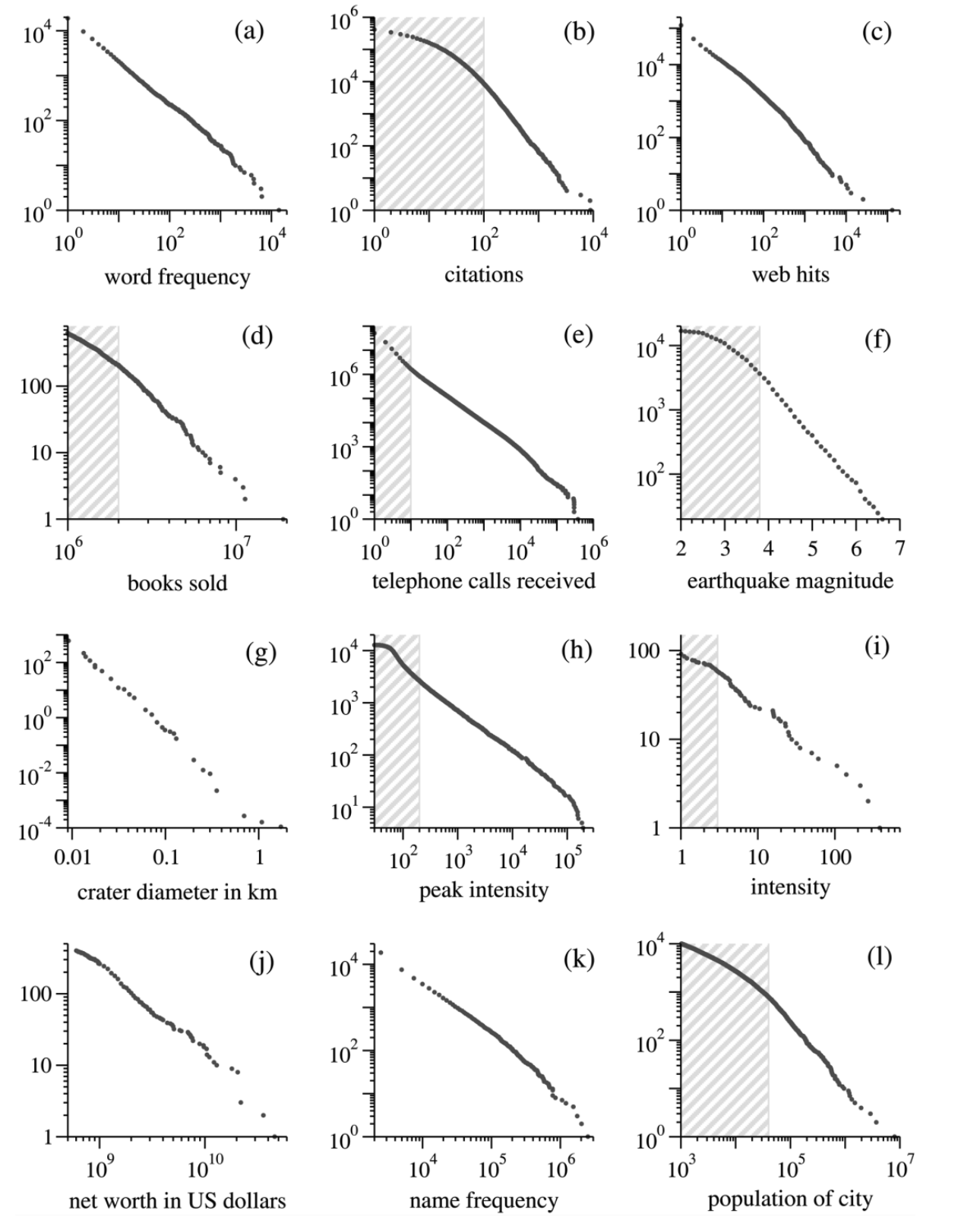
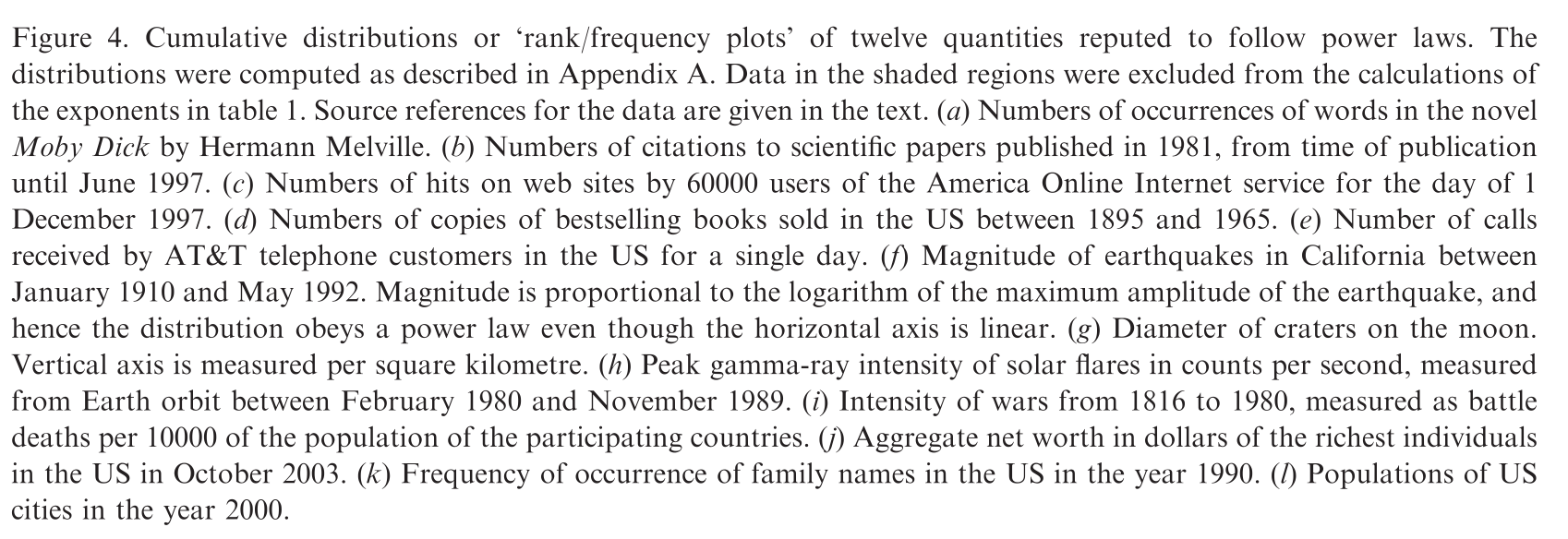
Class: 😯
Week 7: Elements
The lectures this week spanned from Democritus to the modern periodic table while touching upon various ancient philosophical consderations of the world around us.
During the accompanying discussion session, I showed this particular image to the class inviting wild guesses to what this might be. Additionally, I hinted that this story had been making rounds in the news quite recently.
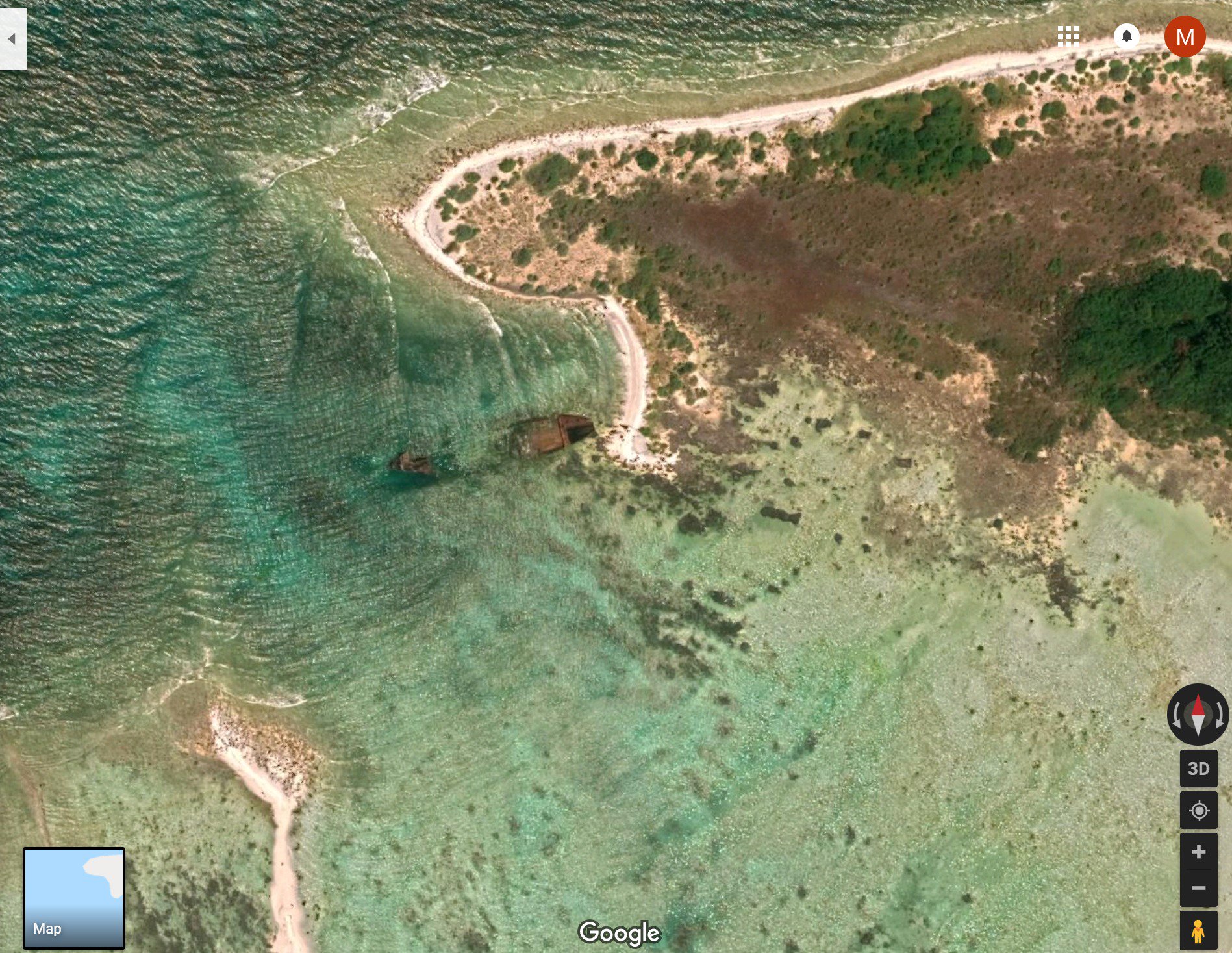
In 1981, a cargo ship named The Primrose ran aground on the coral reef surrounding North Sentinel island (an island in the Andaman archipelago).
The tribes living on that island do not appreciate (their dealings with people who tried, has made this very clear) contact by the outside world, mainly due to bitter experiences in the past.
The crew radioed for assistance and settled in for a long wait. But in the morning they saw 50 men with bows on the beach, building makeshift boats. The crew called for an emergency airlift and were evacuated, and not a moment too soon. Rough waves had thwarted the Sentinelese tribes in their attempts to board, but the weather was clearing.
The ship and its cargo were left at the island, awaiting discovery by Neolithic eyes. Today one can still see the gutted remains on The Primrose on Google Earth
Speaking about this, I motivated the class to think about the reaction/feeling of the tribes who might have boarded the ship and seen a glimpse of the modern world(tools, technology etc.)
We've come a long way since Democtirus 🙂
Week 8 and 9: Midsemester exam and break
Conducted the midsemester exam. How come we never had a midsemester break at BITS 😯
Week 10: Quantum Computing
Fresh off the midsemester break, Dr. Menon touched upon combinatorics to with an aim to head towards random walks. He also posed a problem of unlocking a four-digit lock (24 possibilities). I was thrilled. Going back to Fermi estimates from week 4, I asked the class to estimate how long it will take for them to unlock such a lock if one does it sequentially, randomly, or any other way they can think of. This also seemed like a nice place to talk about the existence/power of randomized processes/methods to tackle problems. Dr. Menon also had introduced the class to Randomised Clinical Trials (RCT's) I stated an example of trying to unlock a 3 digit lock for which one has forgotten the right combination. From childhood experiences, some students of the class recalled holding the unlock clip and randomly flipping through the digits and being able to unlock it in a reasonable amount of it. I reminded them that these are average estimates (if the code is 001...ofcourse sequential would be a better choice than random attempts) and additionally encouraged them to think if this is the case if it was a 10 or a 100 digit lock.
Making it simpler, superficially, I got the class to agree that a 10 digit lock is harder to pick than a 3 digit lock.
See where I'm headed?
In other words, cracking an m digit code takes longer than an n digit code when m>n. Similarly, factorizing an m digit number is harder than an n digit number when m>n. This lays the foundation for classical cryptography. A time-varying large number (encryption) asking to be factoried (decryption).
Naturally, we as humans do not settle at this (especially when there's money involved 😛) and think of ways to tackle this. Thats what a quantum computer (Shor's algorithm) is capable of achieving. And then there's post-quantum cryptography. Thinking of a dear friend, I left the class at this!
Week 11: Evolution...collective behaviour
It was quite interesting to learn about Dr. Rosalind Franklin and Alfred Russel Wallace, names which are often missed in crediting the discovering of DNA and evolution respectively. Showing some cool examples of evolution, collective behaviour of birds, fish, ants and humans naturally crept in. I motivated few mechanisms (observing nearest neighbours, pheromones) and reasons (reduction of cognitive load, ecaping predators) why evolution has given birth to collective behaviour.


Week 12: Conditional probability
This week, Dr. Menon cited examples of Monty Hall problem, O.J. Simpson trial to introduce the class to Baye's probability. Additionally, this introduced the class to asking the right questions and acknowledging and making best use of the information at hand to make a decision when stochasticity is involved.
Say a plane crashes and Boeing is on trial arguing that the cause was not mechanical failure, citing
that, "Only 1 in every 100,000 planes will ever have this particular mechanical failure
Probably true, but who cares?
The question you want answered is, of planes that do crash, what percentage had that mechanical failure?
It might not be a large number, as there are many possible causes of a crash, but it will be larger than 1 in 100,000.
Week 13: Climate change
This week's class focussed on what is probably the most challenging problem our world faces today. Videos of pro and anti (eg: Willie Soon) climate change activists were shown to class with following discussions on the validity of climate change. It also exposed the class to peer reviewed scientific work and the need for it.
